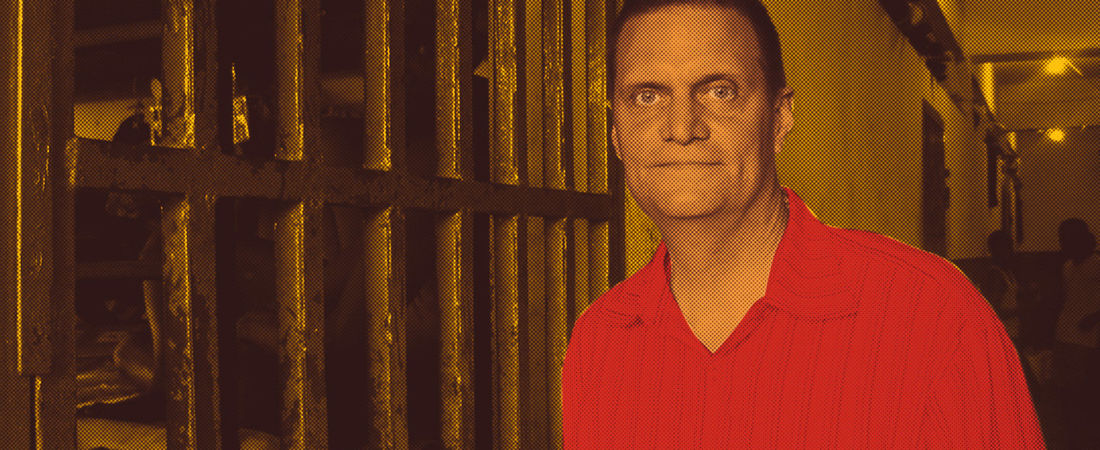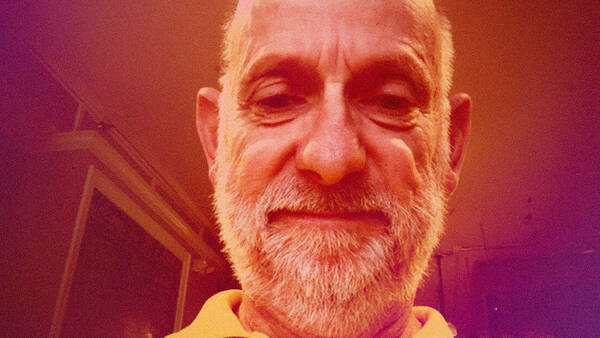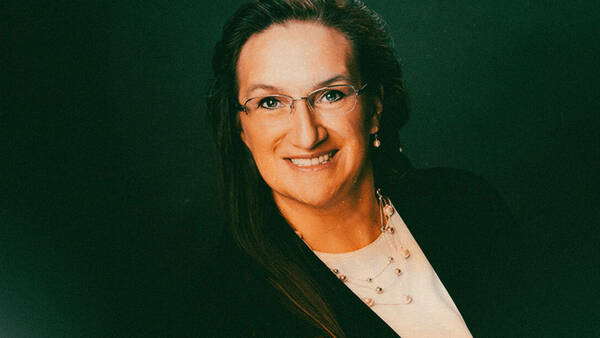When Dr. John May ’84 was an internal medicine resident at Cook County Hospital in Chicago, he spent his evenings working extra shifts at the Cook County Jail, which needed medical help on the night shift. By the end of his three-year training program, he knew he wanted to provide care for prisoners full time, and accepted his first job as a doctor at the Cook County Jail.
“I saw a need that I couldn’t turn away from, that this was a population that wasn’t getting a lot of attention, even from the medical community. Twenty-five years ago, prison health care was not very attractive to professionals,” May says. “My experience has been that somehow the lives of persons in jails or prisons are valued less than persons not in jail or prison. But once you have exposure to the situation, you understand how connected they are to the whole community and to a civil and just society, to a compassionate society. You see them as individuals and part of God’s family, and we have to respond.”
Today, May is a national and international advocate for improving health care in prisons and jails, and co-founder of the nonprofit Health through Walls, which helps low-income countries implement sustainable improvements to the health care services in their prisons.
May’s day job is as chief medical officer for Centurion, a company that provides health care to prisons and jails in the United States. All his work with Health through Walls is in his spare time, and he spends at least one weekend every two months in Haiti, providing care to prisoners himself. He and his partner, Mark Andrews, founded the organization in 2005. The two reside in Miami with their two sons, which makes it a quick hour and a half flight for May’s trips to Haiti.
May followed in the footsteps of his father, S. John May ’61, in attending Notre Dame, and has been involved in international health care his entire medical career. Before his residency in Chicago, he spent a year in west Africa on a fellowship in international health, inspired in part by the career of Notre Dame physician Thomas Dooley ’48, the namesake of Notre Dame’s Dooley Society for Medical Alumni and a Navy doctor who cared for patients in Southeast Asia during the Vietnam War.
“It was that previous international experience and the story of Dr. Tom Dooley that inspired me to look beyond the United States at the needs of prisoners in other countries,” says May, who was honored for his work with the Alumni Association’s Dooley Award in 2017.
He found himself focusing on Haiti first, after watching a 60 Minutes news special about the dismal conditions and overcrowding in prisons and jails in the country. The program aired in 1999, and about a year later, May went to Haiti to see the conditions firsthand.
“I was shocked by what I saw, mostly because it was even worse than what was on the TV program,” he says. “At that time, there was little or minimal medical care being provided in the prisons. Thousands of prisoners were there, and people were dying regularly of preventable diseases and untreated conditions. Once I saw those conditions, I couldn’t just walk away from it.”
He continued his monthly trips to provide care in Haiti, often bringing friends to help, or volunteer students from medical schools and colleges, including Notre Dame. By 2005, he decided to formalize the efforts, creating Health through Walls as a nonprofit. In its 15 years of work in Haiti, the organization has dramatically changed how health care is offered in prisons.
On one of his early visits to Haiti, May brought a sink and was able to install the first sanitation station in one prison. HIV/AIDS, tuberculosis, and malnutrition were the most pressing issues among the prisoners. Today, Health through Walls has full-time staff in all the prisons in Haiti, where local doctors and nurses deliver care and treatment to more than 12,000 prisoners.
“We’ve set up systems of medical records, laboratories, a pharmacy, disease screening, and disease management,” May says. “We’ve partnered with the AIDS Health Care Foundation to establish a clinic in the community for prisoners who are released and their families, for continuing care. Word has spread beyond Haiti and we’re now working in prisons in the Dominican Republic and Jamaica, and we do some work in Africa, currently in Malawi. We get requests regularly from low-and-middle-income countries around the world to provide assistance and guidance for their prison health programs.”
Health through Walls is run entirely by volunteers and supported by donations and grant money, including funds from USAID, and May says that it is not always easy to garner support for people who are incarcerated.
“We’ve successfully been able to inspire people who never previously cared about or thought about what happens to the health of prisoners—how it impacts the families of prisoners, those who work in prisons, those who visit prisons, and the communities to which the prisoners hopefully return,” May says. “If we don’t keep these patients healthy, it is going to have a negative impact on community health, because we are a globalized society now. What happens inside a prison as far away or as remote as, for instance, Haiti, has an impact on all of us. Disease spreads, drug resistance goes across walls, across borders. Families, migration, immigration, justice, and the rule of law—it’s all connected. Paying attention to the needs of prisoners around the world is critical to make in impact on global health.”



